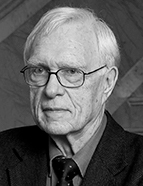

During this period, the author gradually became closer to Spanish right-wing intellectual circles (Francisco J. R. Jímenez, “Stanley Payne ¿Una trayectoria...?”, 2015, pp. 25-26), while consolidating his position as a renowned Hispanist and deepening his studies on fascism ( ). In 1980, already anticipating the phase of renewal in the study of fascism that would culminate in the following decade, he published Fascism: Comparison and Definition, in which he presented his proposal for a generic definition based on his conservative, comparative and culturalist perspective. This was presented not as a succinct formula, but rather as an elaborate yet objective typological description that included several elements: ‘fascist negations’ – anti-liberalism, anti-Marxism, anti-Enlightenment, etc.; the ideological and cultural aspects – nationalism, the cult of virility, ascetic mysticism, fin de siècle decadence, etc.; and finally the socio-economic aspects – the structures and dynamics of fascist movements and parties (El fascismo, 2022, p. 16). Among other publications, Payne released A History of Fascism, 1914-1945 in 1995, a work in which he consolidated his previous arguments and presented a broader and more in-depth view of the history of the various European fascisms. In 2000, he produced another major work, Fascism in Spain 1923-1977, in which he presented a more consolidated analysis of the same theme as his first book – the Spanish fascist movement FE de las JONS – based on primary sources and an ‘inside out’ approach.
During and after the wave of renewal in fascism studies, the author became closer to the Spanish right-wing intelligentsia, which led him to produce more controversial works and increased criticism in Spain of his research methods. One of his most recent works, Franco: a Personal and Political Biography, published in 2014 in collaboration with the far-right essayist Jesús Palacios Tapias, was strongly criticised by most Spanish historians, many of whom considered it a hagiography that added no new facts or insights to the academic debate on the figure of Franco. As a result, Payne’s historiographical output ceased to be so consensual and came to be considered by most Spanish historians specialising in fascism as biased, representing the views of the Spanish right, in the context of an intellectual battle that continues to this day (Francisco J. R. Jímenez, ‘Stanley Payne ¿Una trayectoria...?’, 2015, pp. 24-54).
This work is financed by national funds through FCT - Foundation for Science and Technology, I.P, in the scope of the projects UIDB/04311/2020 and UIDP/04311/2020.
